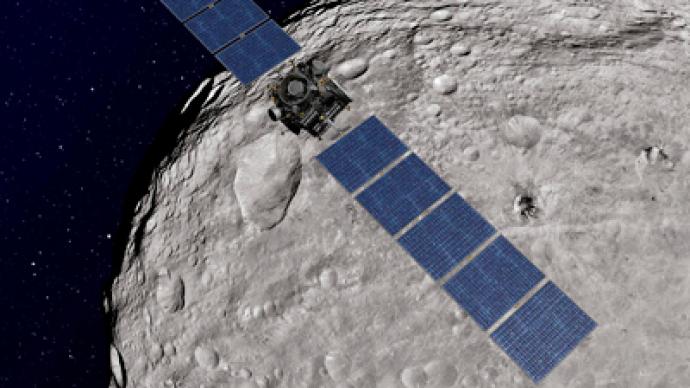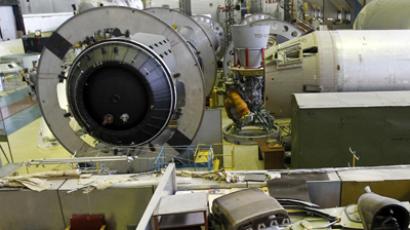Asteroid mining by 2020: Robo-ships to dig space rocks for gold & fuel

Building a network of light telescopes and designing a cheap robotic probe are to be the first steps of Planetary Resources, a US-based company hoping to kick-start private development of asteroid mineral riches.
Eventually its know-how will be used to harvest gold, platinum, rare earth metals, water and fuel in space, the company said at an inaugural event on Tuesday.A demonstration orbital mission may be sent as early as in 18 to 24 months, said company co-founders Peter Diamandis and Eric Anderson. They want to deploy several observation platforms – telescopes weighing just a few kilograms each, capable of searching and identifying targets for future mineral extraction.The network of spacecraft with an estimated cost of $10 million apiece will be needed to greatly expand the catalogue of near-earth asteroids and select those with biggest potential pay-off for miners.Within five to 10 years Planetary Resources hopes to offer prospecting services as well. It wants to use a novel design approach to greatly reduce the cost of robotic probes – to one-tenth or even one-hundredth of the cost of current space missions, priced at billions of dollars, Diamandis said. For example, the company wants to replace large radio antennas aboard spacecraft with optical laser communications."We're taking new approaches in design," Diamandis told Reuters. "Part of the philosophy we're taking is building very low cost, very small spacecraft. You put up six or 10 or dozens and you get reliability."The first customers of the company are likely to be national space agencies and private research institutes. If everything goes according to plan, the company hopes to have an orbital fuel depot processing asteroid water into liquid hydrogen and oxygen by 2020. The elements can be used to propel third-party spacecraft, and producing fuel in orbit would cost less than boosting it off from downside."We have a long view. We're not expecting this company to be an overnight financial home run. This is going to take time," Anderson explained.Planetary Resources currently employs about 20 people and is overseen by former NASA Mars mission manager Chris Lewicki. It was founded three years ago, but has been flying below the radar until now.Among the investors of the bold and costly enterprise are movie director James Cameron, several top Google executives and billionaire Charles Simonyi. The exact amount of funding the company has managed to raise is not disclosed.














